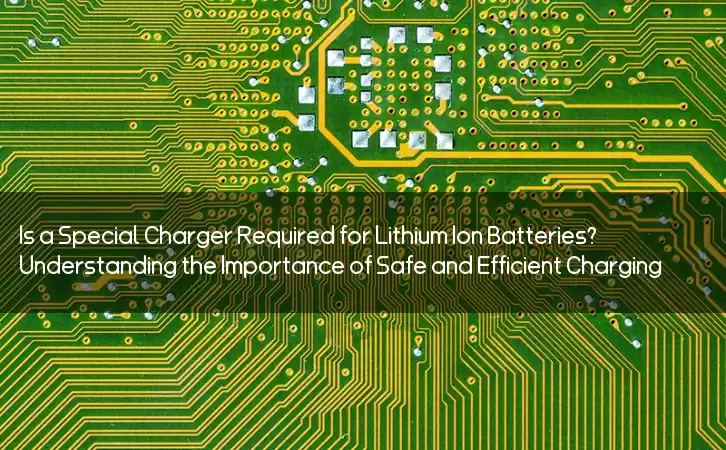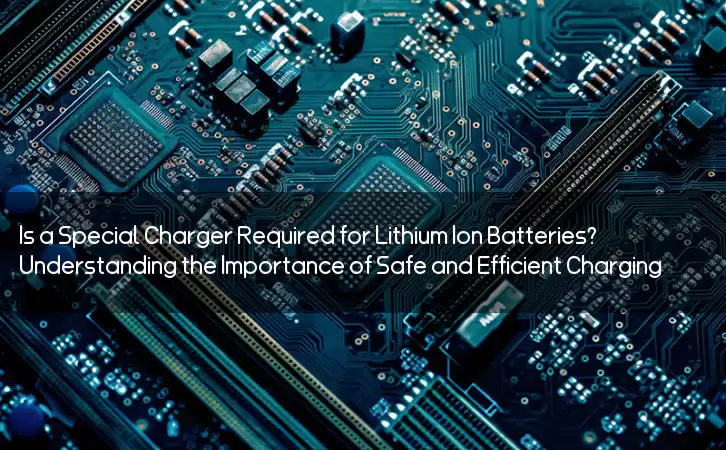Information Center
Is a Special Charger Required for Lithium Ion Batteries? Understanding the Importance of Safe and Efficient Charging
Published:2023-06-09 20:38:28 Author:Green WCND Views:66Lithium ion batteries are one of the most commonly used types of rechargeable batteries in today’s electronic devices. From smartphones to tablets, laptops, and even electric vehicles, lithium ion batteries have become a ubiquitous source of energy for powering various gadgets. However, one question that often arises in the minds of users is whether these batteries require a special charger or not.

The short answer is yes, lithium ion batteries do need a special charger, but the long answer is a bit more complex than that. To understand why a special charger is needed, we first need to understand how lithium ion batteries work.

Lithium ion batteries work by storing and releasing energy through a process that involves the movement of lithium ions between two electrodes – the cathode and the anode. When the battery is charged, lithium ions move from the cathode to the anode, and when it is discharged, the process is reversed.
However, the movement of lithium ions is not the only factor that determines the performance and longevity of the battery. Other factors such as temperature, voltage, and current also play a crucial role in ensuring that the battery operates optimally and lasts longer.
This is where the role of a special charger comes into play. A special charger is designed to ensure that the voltage and current supplied to the battery are within the safe limits specified by the manufacturer. It also ensures that the temperature of the battery does not exceed a certain threshold, which can cause damage to the battery or even lead to a fire or explosion.
A good quality lithium ion battery charger will also have several safety features such as overcharge protection, short-circuit protection, and over-discharge protection. These features help prevent damage to the battery and ensure that it operates safely and efficiently.
Using a non-special charger for a lithium ion battery can have several risks associated with it. For instance, it can lead to overcharging, which can cause the battery to overheat, leak, or even catch fire. It can also result in undercharging, where the battery’s capacity is reduced, and its lifespan is shortened.
In conclusion, yes, lithium ion batteries do require a special charger to ensure their optimal performance and longevity. Using a non-special charger for lithium ion batteries can result in safety hazards and reduced battery life. It is always recommended to use a charger provided by the manufacturer or a charger that is specifically designed for lithium ion batteries.
Power Adapter Design and Customization Guide for Portable Electric KettlesI. Common Design Types for Portable Electric Kettle Power AdaptersPortable electric ke···
I. Common Design Types of Power Adapters External Independent Type (Most Common) Design: A standalone adapter (e.g., "black brick") connected to the p···
Handheld Vacuum Cleaner Power Adapter Selection GuideIntroductionHandheld vacuum cleaners have become a mainstream tool for household cleaning due to their port···
Drill Power Adapter Selection Guide.drill-container { font-family: Arial, sans-serif; line-height: 1.6; max-width: 800px; margin: 0 auto; padding: 20px; } .dril···





